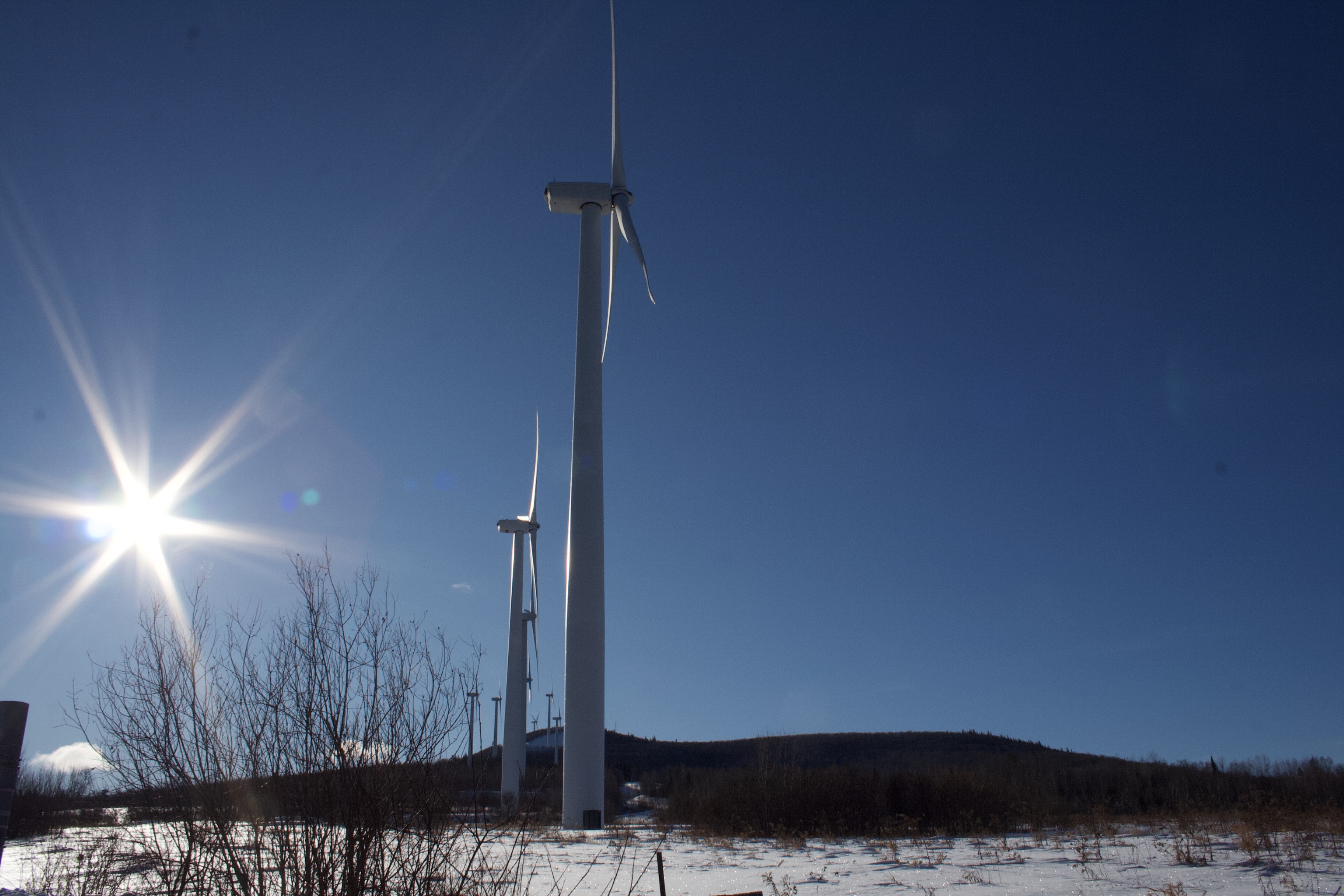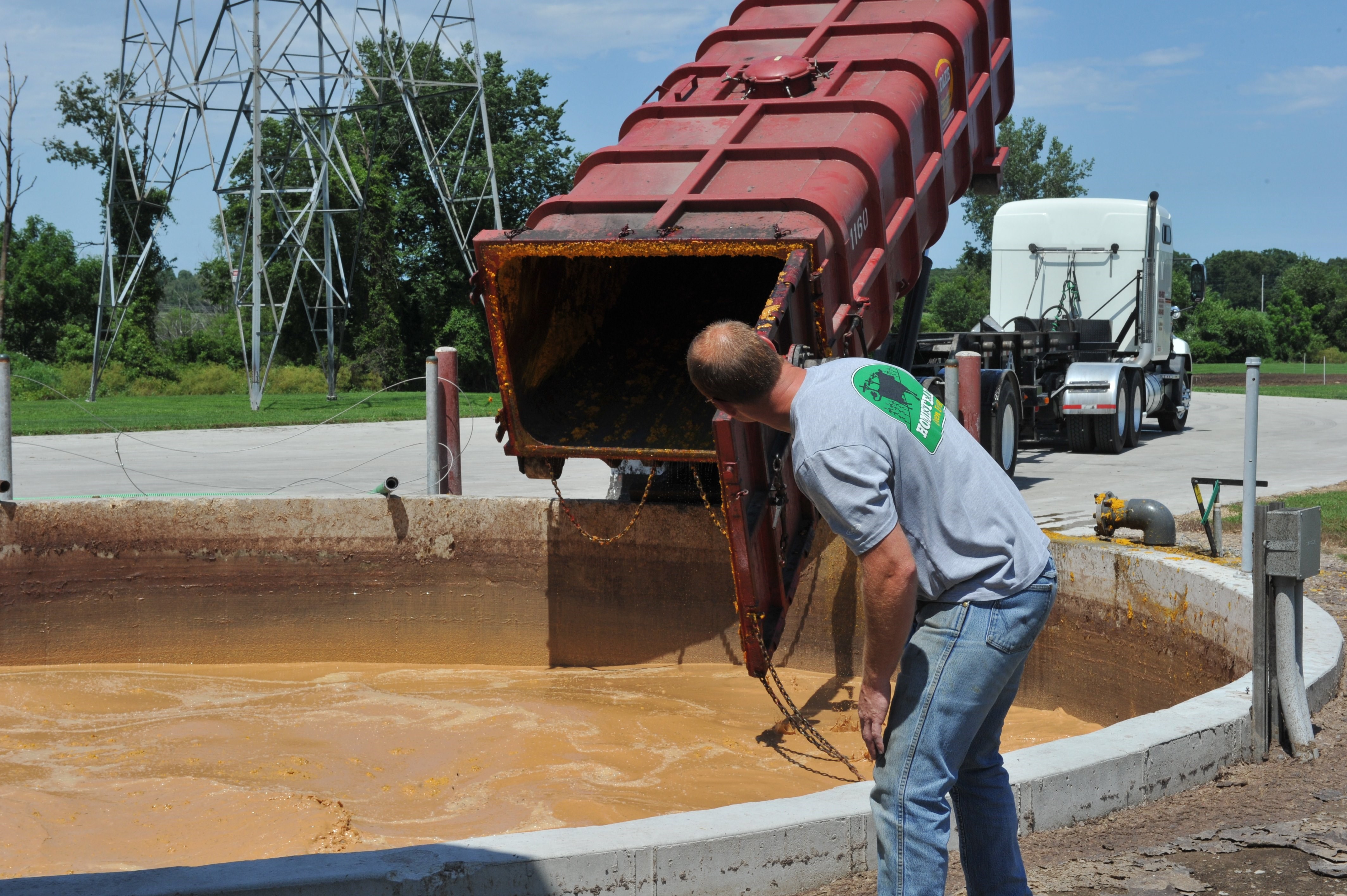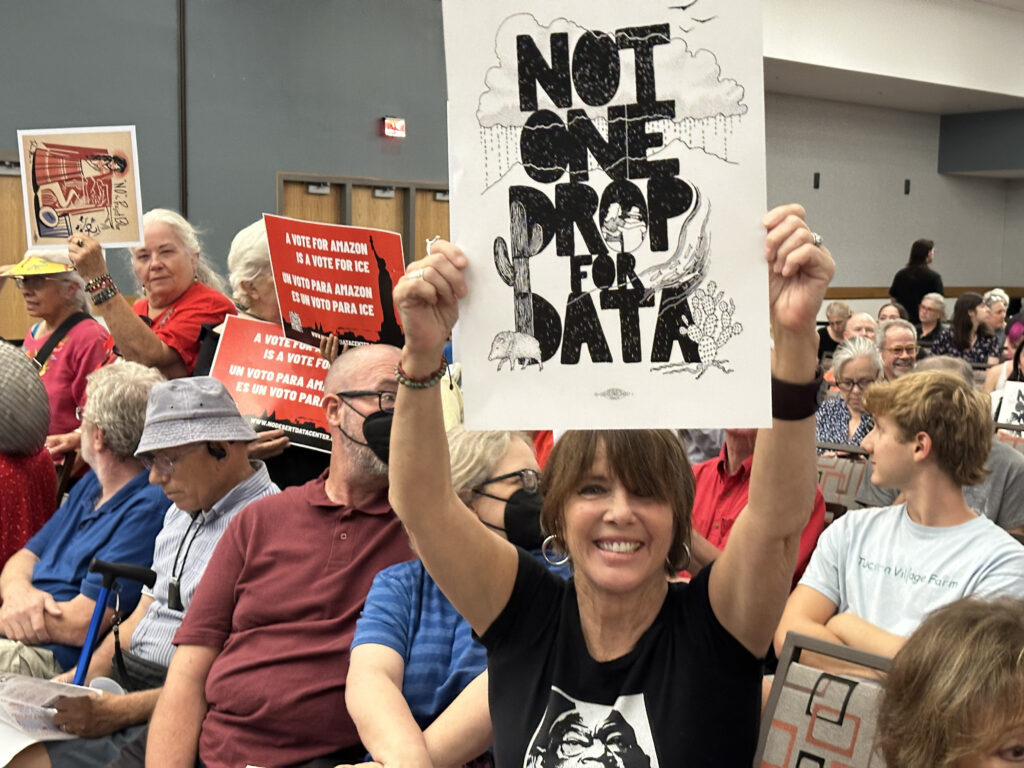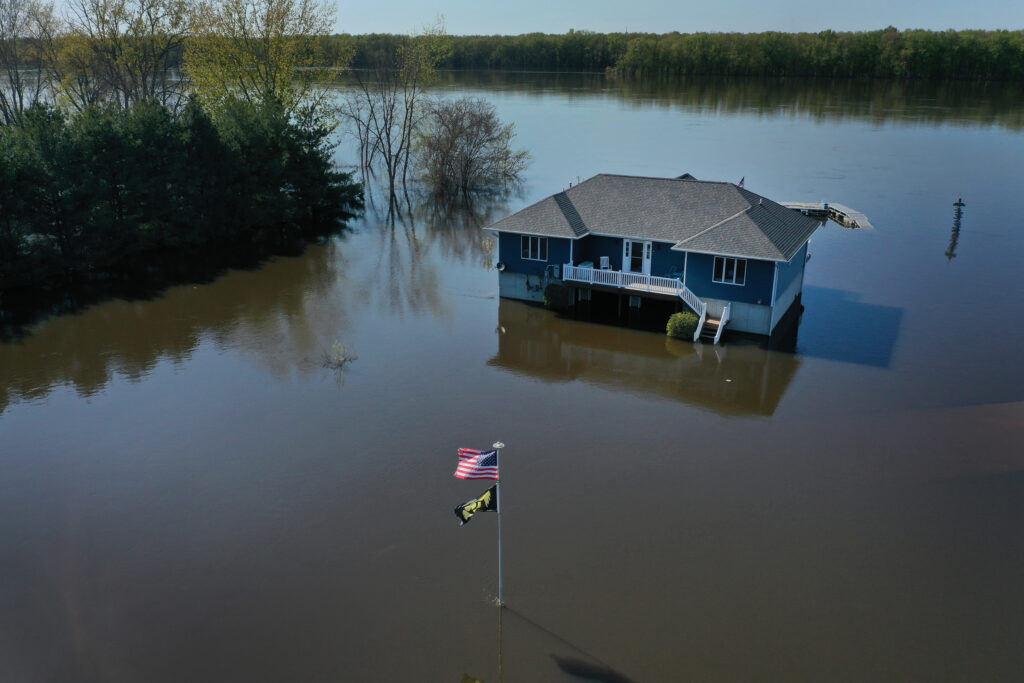Federal environmental scientists have been “left largely defenseless.” Their jobs abruptly terminated. Their research and policy advice ignored, manipulated or suppressed. Their agency captured by the industry it’s obligated to regulate.
That’s the assessment of the Office of Inspector General, or OIG, the U.S. Environmental Protection Agency’s government watchdog, and two nonpartisan, nonprofit groups made up of former federal staff: Public Employees for Environmental Responsibility (PEER) and the Environmental Protection Network (EPN).
In February, EPA Administrator Lee Zeldin announced that his “Powering the Great American Comeback” Initiative would achieve EPA’s mission—to protect human health and the environment—“while energizing the greatness of the American economy.”
The following month Zeldin—who received nearly $205,000 from the oil and gas industry during his four terms as a Republican congressman in New York, according to OpenSecrets—launched the “biggest deregulatory action in U.S. history,” promising “reconsideration” of regulations on oil and gas wastewater, greenhouse gas emissions and air pollution, among other environmental protections.
On top of these rollbacks, EPA cancelled billions in congressionally authorized grants and fired thousands of career staff, in line with the vision of Project 2025, a policy blueprint to dismantle the administrative state that was organized by the Heritage Foundation, a right-wing think tank bent on “cooling the climate hysteria.”
Citing attacks on the public servants and programs critical to EPA’s mission, environmental experts delivered a dire message at a briefing this week on autocratic abuses of power: The fate of their work hinges on their ability to combat the rise of authoritarianism in the United States.
“We are seeing an unprecedented and illegal purge of nonpartisan federal workers,” said Joanna Citron Day, general counsel at PEER, “and it’s getting worse.”
“PEER is challenging the Trump administration’s illegal attempt through executive order to allow the president and his political appointees to fire civil servants and replace them with loyalists,” Citron Day said. “PEER is also fighting against loyalty oaths as a basis for federal service.”
The Trump administration’s actions threaten public health and the environment by eliminating the nonpartisan federal workers who create and enforce regulations across government, the panelists said at the briefing organized by PEER with EPN and Next Interior, a new organization founded for former Department of the Interior scientists.
“We are in an authoritarian state,” said PEER executive director Tim Whitehouse at the briefing.
Democracy has eroded to the point where there are few meaningful checks on the executive’s power, he said. “And the president and his allies are using that power to amass more power and crush dissent.”
Civil servants who once had to demonstrate their competence and objectivity now have to prove personal loyalty to the leader to keep their jobs, Whitehouse said. “Corruption that would have caused outrage in other times goes barely noticed.”
Independent government officers, including prosecutors, inspectors general and commissioners, are being fired in ways that contradict the country’s laws and longstanding norms, Whitehouse said. “Their positions are being eliminated or handed to yes men and women.”
Inspectors general serve as watchdogs over government agencies.
Yet within a week of returning to office, President Donald Trump fired inspectors general from 18 federal agencies, including EPA’s inspector general, Sean O’Donnell. Nonetheless, in September, staff at the agency’s OIG released a memo outlining 15 issues it had uncovered that remain unresolved.
Among them was a failure to develop “clear reporting procedures for scientific concerns involving political appointees” to ensure scientific integrity.
The memo followed a charge of “blatant political interference” in the 2021 toxicity assessment of a PFAS “forever chemical” by Trump appointees in the final days of the president’s first term. The next year, O’Donnell charged the agency with undermining its scientific credibility by running roughshod over standard protocols in 2019, also during Trump’s first term.
The OIG ruled that EPA had ignored its own scientists’ assessments to minimize the cancer risk of a lucrative fumigant, 1,3-dichloropropene, or 1,3-D, relying on an unsupported theory presented by Dow, its manufacturer, over the objections of agency scientists. The OIG urged EPA to secure an independent review to restore its scientific integrity.
More than three years later, the agency still has not secured that review.
EPA has become “completely captured by the industry,” PEER’s Whitehouse told Inside Climate News, and now its goal is to serve the wealthy, powerful industries it’s supposed to regulate.
EPA rejects the “inappropriate and unfounded” notion that the agency’s career staff and pesticide registration decisions are influenced by external interests, said Brigit Hirsch, EPA press secretary. “EPA relies on the best available science and evaluates information from multiple sources—pesticide companies, other governments, academia and the published scientific literature—in its science evaluation process.”
Yet in July, Zeldin announced his plan to dismantle the agency’s prestigious Office of Research and Development. Now, it’s moving ORD staff into its pesticide office to conduct risk assessments they’re not trained to perform in an effort to accelerate permit approvals for the chemicals, former staff say.
“They are not reorganizing this agency to be effective,” Kyla Bennett, a former EPA scientist and whistleblower who now leads PEER’s science policy work, told Inside Climate News. “They are reorganizing this agency to make it easier for industry to get their chemicals and pesticides to market.”
What Climate Crisis?
As EPA’s top officials implement what former staffer Peter Murchie called “an almost incapacitating” reduction in the agency’s workforce through reorganizations, coerced voluntary resignations and terminations, they’re reconstituting their scientific advisory boards.
They’re nominating candidates for political leadership positions who are “either highly unqualified or conflicted or both,” said Murchie, who resigned from EPA in April after working there for most of his career. He now leads public affairs and policy initiatives at EPN, an organization of more than 700 former EPA staff and appointees founded to defend science during the first Trump administration.
“A good example of that is former chemical industry lobbyists now in critical decision-making positions over the approval of toxic chemicals,” Murchie said, referring to top administrators in the Office of Chemical Safety and Pollution Prevention who worked for DuPont and the industry’s trade group, the American Chemistry Council.
“In addition, they’re getting rid of advisory bodies, or if they’re keeping those, working to replace objective scientists and experts with industry advocates,” he said.
“I literally laughed out loud when you claimed your sources were ‘nonpartisan watchdogs,’” said EPA press secretary Hirsch, when asked to respond to charges from PEER and EPN that the agency is catering to powerful industries instead of the public good. “These far-left groups just can’t accept that the Trump EPA is laser-focused on its core mission of protecting human health and the environment, delivering gold standard science while fostering economic growth.”
Hirsch added: “We’ve delivered hundreds of environmental wins already, and we’re just getting started.”
Trump officials routinely characterize critics, including moderate Democrats, as far-left.
“Federal employees are no longer free to provide scientific and factual evidence to their leadership, and decisions are being made by a small number of corporate interests that negatively impact our health and economic well-being.”
— Former EPA staffer Peter Murchie of the Environmental Protection Network
EPA solicited nominations for two of its prestigious independent science advisory panels, the Science Advisory Board and Clean Air Scientific Advisory Committee, in May after firing all the existing members within weeks of Trump’s return to office.
Federal law requires both panels to provide independent, unconflicted scientific and technical advice to the EPA administrator. The agency is still reviewing the list of candidates, which it posted in August to seek public comment. The list includes several scientists who are either directly employed by the petrochemical or fossil fuel industry or consult for the regulated industries.
EPN reviewed the nominees in comments it submitted to the agency, and found several who are affiliated with the Heartland Institute, which holds an annual conference dedicated to denying the global climate crisis. Other nominees belong to the CO2 Coalition, which promotes climate misinformation as facts, and the Cornwall Alliance, which aims to “save the public, especially the young, from false environmental propaganda.”
One contrarian public health scientist even disputes the link between fine particle pollution, or PM2.5, and premature death in order to challenge national air quality standards, despite overwhelming evidence that PM2.5 causes millions such deaths every year.
Authoritarian Attacks on Science
Science-based governance is not a partisan issue, but this administration is making it that way, Murchie said.
“Federal employees are no longer free to provide scientific and factual evidence to their leadership,” he said, “and decisions are being made by a small number of corporate interests that negatively impact our health and economic well-being.”
There’s no debating scientific fact, like the science of human-caused climate change, PEER’s Bennett said, but that’s what happens under an authoritarian regime.
“Independent and government scientists are silenced or even fired,” Bennett said. “Facts are twisted. Fake science is pushed, and uncertainty is weaponized.”
All of this is happening in the United States today, she said, and it’s putting public health and the environment at risk.
This story is funded by readers like you.
Our nonprofit newsroom provides award-winning climate coverage free of charge and advertising. We rely on donations from readers like you to keep going. Please donate now to support our work.
Donate Now
Even an EPA stakeholder committee with heavy industry representation, the Pesticide Program Dialogue Committee, hasn’t escaped unscathed.
Entomologist Marc Lame, who’s served there since 2012, received an email on Tuesday relieving him of his position because the committee’s charter “temporarily expired.”
Such a thing has never happened before, said Lame, a clinical associate professor emeritus at Indiana University’s School of Public and Environmental Affairs.
The committee also stopped publishing transcripts and has not explained why, said Nathan Donley, environmental health science director for the nonprofit Center for Biological Diversity. At the last meeting in June, a group of “MAHA moms,” a reference to the “Make America Healthy Again” movement, talked about how pesticides are harming their family, Donley said, but there’s no publicly available transcript of the meeting for the first time in years.
“There’s really no good reason why they would stop now, other than to prevent those voices from being heard,” he said. “To silence opposition.”
The Trump administration’s attacks on the scientists and research vital to protecting the environment follow its release of a climate report that claimed to provide “a critical assessment of the conventional narrative on climate change.” Critics called it “deceptive” and “antiscientific.”
The report’s “critical assessment” asserted that carbon dioxide-induced warming “appears to be less damaging economically than commonly believed” and that plants benefit from extra carbon dioxide, among other scientifically unsupported claims. The report, apparently following Project 2025’s directive to “end the Biden administration’s unprovoked war on fossil fuels,” was produced by scientists who reject the scientific consensus on climate change.
The administration has redesigned the federal government, the laws that prop up civil service and appropriations, with no law passed or Supreme Court decision to authorize that, PEER’s Whitehouse told Inside Climate News. “It’s a remarkable situation.”
That’s why PEER’s Citron Day reminded people that the Constitution still exists, along with other avenues to seek redress of wrongdoing, despite the administration’s rhetoric. She urged them not to comply in advance, invoking the words of historian Timothy Snyder, who has warned that authoritarians gain much of their power through people’s anticipatory obedience.
“We’re in a lawless period, and the administration is taking advantage of that to reshape the federal government in a way that benefits its leaders, financially and economically,” Whitehouse said. “There are no checks at this moment on that power.”
About This Story
Perhaps you noticed: This story, like all the news we publish, is free to read. That’s because Inside Climate News is a 501c3 nonprofit organization. We do not charge a subscription fee, lock our news behind a paywall, or clutter our website with ads. We make our news on climate and the environment freely available to you and anyone who wants it.
That’s not all. We also share our news for free with scores of other media organizations around the country. Many of them can’t afford to do environmental journalism of their own. We’ve built bureaus from coast to coast to report local stories, collaborate with local newsrooms and co-publish articles so that this vital work is shared as widely as possible.
Two of us launched ICN in 2007. Six years later we earned a Pulitzer Prize for National Reporting, and now we run the oldest and largest dedicated climate newsroom in the nation. We tell the story in all its complexity. We hold polluters accountable. We expose environmental injustice. We debunk misinformation. We scrutinize solutions and inspire action.
Donations from readers like you fund every aspect of what we do. If you don’t already, will you support our ongoing work, our reporting on the biggest crisis facing our planet, and help us reach even more readers in more places?
Please take a moment to make a tax-deductible donation. Every one of them makes a difference.
Thank you,
















